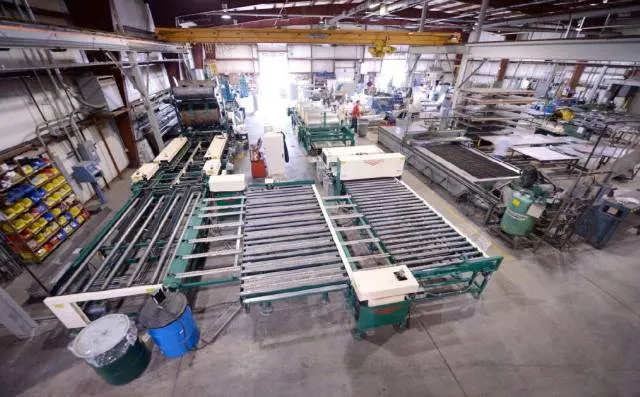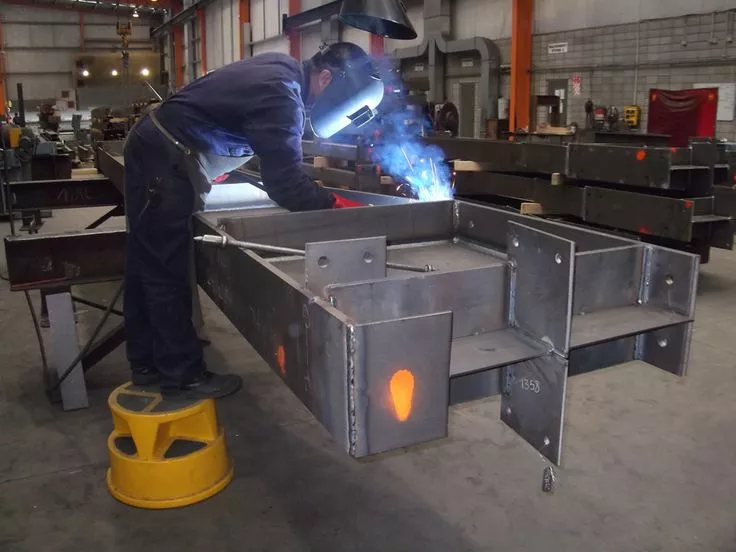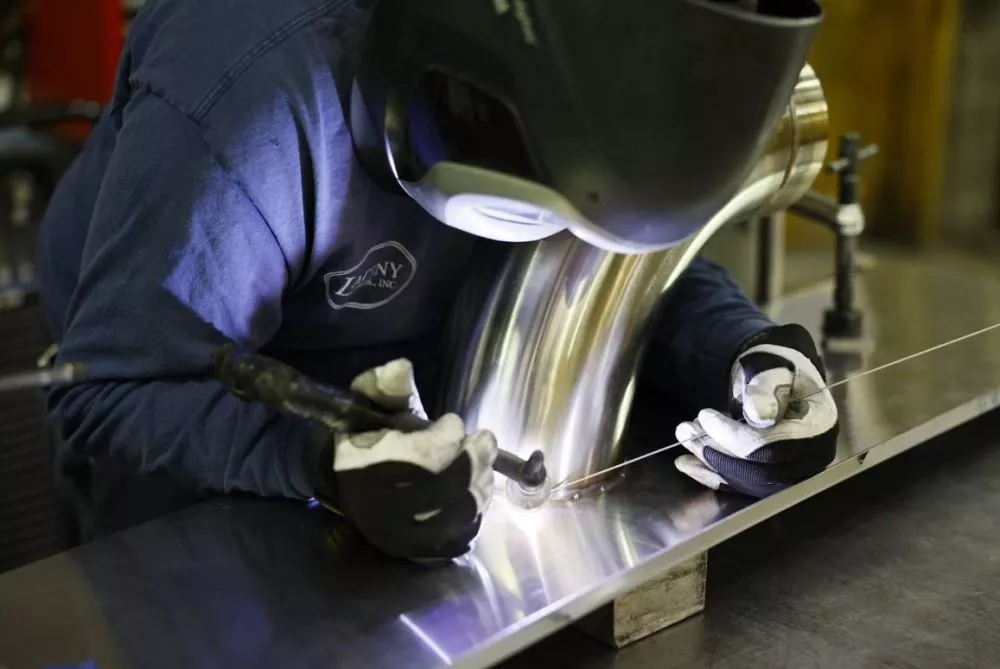Sheet metal fabrication is one of the low-cost methods. The sheet metal process can fabricate various mechanical parts for many applications, from automotive and medical to aerospace industries and products we use every day. The sheet metal process uses metal, and different metals can be selected to manufacture mechanical parts. Aluminum, copper, brass, steel, tin, nickel, titanium, etc., can all support sheet metal. Gold, silver, and even platinum are available. The above metals are often used to create tons of different products.
You may wonder what the associated costs are if you need sheet metal fabrication services. How are they calculated? In this article, we’ll provide a brief overview of the cost of sheet metal fabrication and a generalized method for calculating the cost.
Basic Pricing Information for Sheet Metal Fabrication
Projects are unique from business to business. Market fluctuations, pricing changes, metal material availability, sheet metal part design feasibility, the difficulty of sheet metal fabrication, and other factors may change the cost of a project. While this article is intended to help you understand the cost structure of sheet metal fabrication and how to estimate it, it is not a guaranteed actual price point. Select several different companies to get actual quotes and compare them before you can determine current pricing. Elimold will be a priority when choosing a company to quote.

Sheet metal fabrication cost structure
The cost of sheet metal fabrication can vary greatly depending on several factors, such as the complexity of the design, the type of material used, the quantity produced, and the equipment and labor required.
In particular, if the design requires precise and intricate details, sheet metal fabrication may be more expensive than CNC machining. However, sheet metal fabrication can reduce costs by using less expensive materials or simplifying the design.
So how is the price of sheet metal fabrication calculated? What factors typically make up the cost of machining? Let’s calculate the price composition of sheet metal processing.
1. Raw material cost. Generally refers to the net material cost of metal required for sheet metal parts, calculated based on the length and width of the part drawing * density * thickness, material cost = unit price * material weight.
2, the cost of hardware accessories. The purchase cost of locks, hinges, handles, nameplates, rivets, or fastening standards in the complete configuration required by the product drawings.
3, processing costs. Processing costs generally refer to the depreciation and amortization of equipment used per station, the cost of person-hours, and auxiliary materials required for processing. There are many types of sheet metal processing stations, all of which need to be costed. In addition, each sheet metal processing process requires some specialized mechanical equipment, which also costs money.
These are the price components of sheet metal processing. Sheet metal fabrication is a complex process with high technical requirements and a lot of processing time, and these time and labor costs need to be considered.
If you need sheet metal fabrication, getting quotes from multiple vendors is essential to get a better idea of costs and ensure you’re getting a fair price. Working with a reputable sheet metal fabricator who can guide materials and design options to help control costs is also recommended. Below we list generalized sheet metal fabrication costing methods and formulas.
Sheet metal product cost estimation
When you go into sheet metal fabrication, you must fully understand the cost structure to choose the proper sheet metal manufacturer to work with to ensure the cost is within the estimate. First, we need to understand that there are several stages in the production cycle of sheet metal parts: cutting, bending, roll forming, stamping, welding, and so on. We first need to calculate the cost of materials before calculating the other costs.
The formula for calculating the cost of raw materials
The Sheet Metal Manufacturing Cost Calculator estimates the raw material cost of each product by
Volume x Material Density x Material Cost in Kilograms = Raw Material Cost
Assume that $0.8 per kilogram is the material cost of steel with a density of 7.4kg/dm3 and a sheet size of 800 x 400mm with a thickness of 1mm. We have:
Raw material cost = (8 x 4 x 0.01) x 7.4 x 0.8
Raw material cost = $1.89
You must repeat this process for each raw material used in the process.
How much do you charge for sheet metal design services?
Whether the parts are CNC machined or sheet metal fabricated, they are designed by creating a virtual product on computer software or paper to define the workflow of the entire project. It is an essential step in sheet metal fabrication to optimize product quality and reduce costs. As a result, engineers consider various technical and financial issues when designing a product – the complexity of the geometry, the level of experience of the engineers, the tolerances required, etc.
In general, sheet metal design projects are more expensive than joint CAD projects. This is because sheet metal fabrication requires a precise understanding of the manufacturing process and has a different margin of error than plastics. The average price of a sheet metal fabrication project today is nearly $2,200. Small or straightforward projects can cost as little as $300, but complex or large projects can cost as much as $5,000. It is essential to get as much detailed information as possible before talking to a sheet metal design service provider so that you can get an accurate quote. Each sheet metal design project takes a different amount of time and has a different price. A price comparison chart is attached below for your reference.

Price Example Chart
| Type of Project | Rate |
| 2D Manufacturing Drawings | $50-$60 per hour |
| 3D modeling | $90-200 per hour |
| Part Conversion from 3D models | $60-$70 per hour |
Machining Costs
Manufacturing process costs are calculated hourly and include investment, operator and labor, maintenance, electricity, space, and other consumable costs. Consumables include lubricants, molds, filters, and gases – everything the machine consumes except electricity. Below is a breakdown of the machining cost structure.
| SN | Various costs | Calculation |
| 1 | Machines-investment Cost | |
| 2 | Electricity cost | Rated power of operating machines( KW) x Electricity cost per unit |
| 3 | Operating Cost | · Charge of Operator (/hrs.) · Charge of assistance workers (/hrs.) · Charge of supervisor (/hrs.) |
| 4 | Maintenance Cost | |
| 5 | Occupied Are Cost | |
| 6 | Cost of consumable Items | All consumable items cost per hour |
The formula for calculating machining costs is as follows:
(cost per hour x cycle time of a part)/efficiency = cost of machining
For example, assume a cycle time of 12 seconds, an efficiency of 85.5%, and a cost per hour of $78.4.
We obtain:
Machining Cost = (78.4 x 12) / (0.855 x 3600)
Machining cost = $0.30
Thus, the total direct production cost of a product is:
Raw material cost + Machining cost = Total product cost
Total product cost (one piece) = $1.89 + $0.30 = $2.19
The total processing cost per hour is the sum of all the abovementioned costs. In addition to these costs, the manufacturer adds the profit margin per hour process. Therefore, you will notice that saving on raw material costs can benefit production costs because it represents a high percentage.
Administrative costs
The cost of structuring the manufacturing company, consulting costs, service costs, and other costs of managing the work.
Total Manufacturing Cost
Total cost is the sum of all the costs calculated in the above steps, from product design to administrative costs.
Total cost = (sheet metal cost) + (total processing cost/hour) x working hours + design cost + administrative costs
Conclusion
Sheet metal is cost-effective and versatile. The cost associated with sheet metal fabrication is the sum of the costs, including all the processing items involved in the project. Among them are metal material cost, design cost and processing cost, overhead, and manufacturer’s profit margin. This article shows in detail all the costs involved in manufacturing a sheet metal part and how the costs are calculated. There can be many factors that affect the price of a project. No matter how complex the cost minimization process may be, it is when you understand the specific cost structure of the project that it makes sense to optimize the factors involved to reduce costs.
Choosing a full-service fabricator will be the best option if you are looking for low-cost sheet metal fabrication. This type of manufacturing company can do most of the process itself. Elimold can help you complete your project from design to assembly without additional cost outlay or outsourcing of the process.
Therefore, when you need a sheet metal fabrication service provider, you should look out for a company like Elimold that uses advanced sheet metal fabrication tools and has experienced sheet metal masters. This helps to help you save on project costs in the long run, with a fast and smooth production process and consistent product quality. In addition, only when you work with a professional fabricator can you ensure that your business goals are met effectively.





